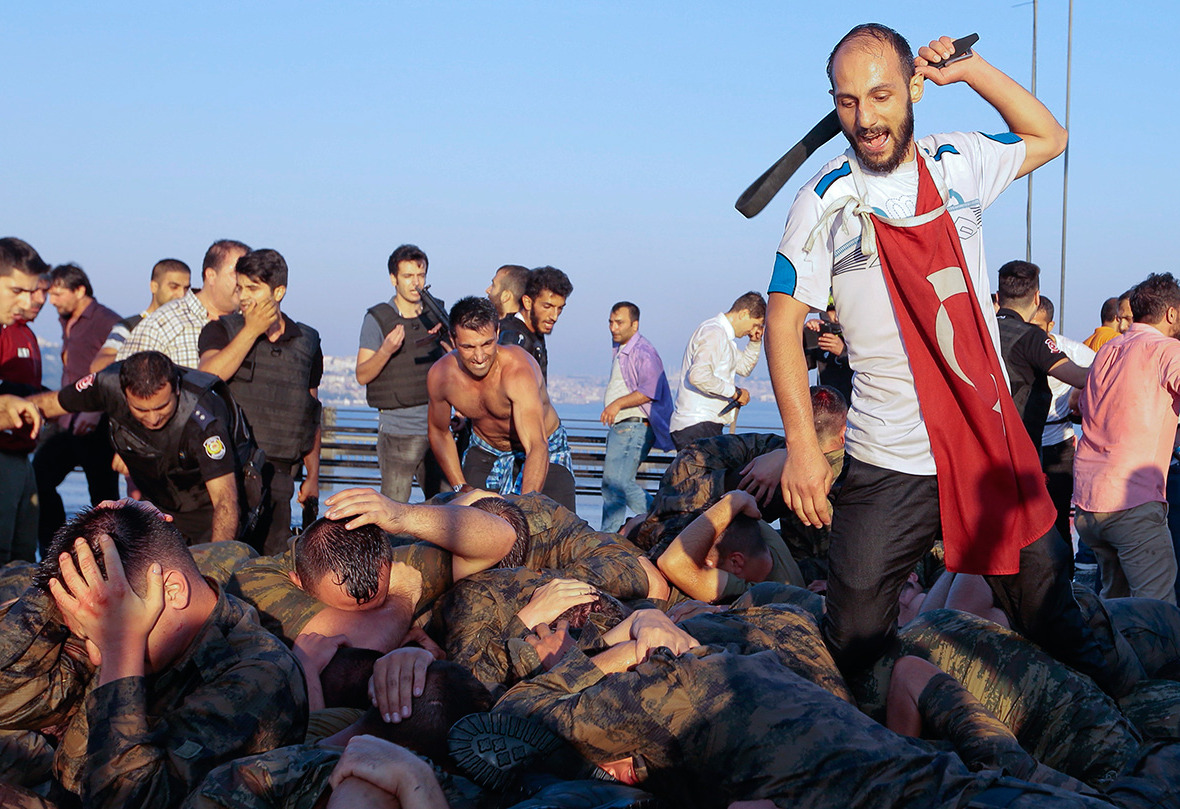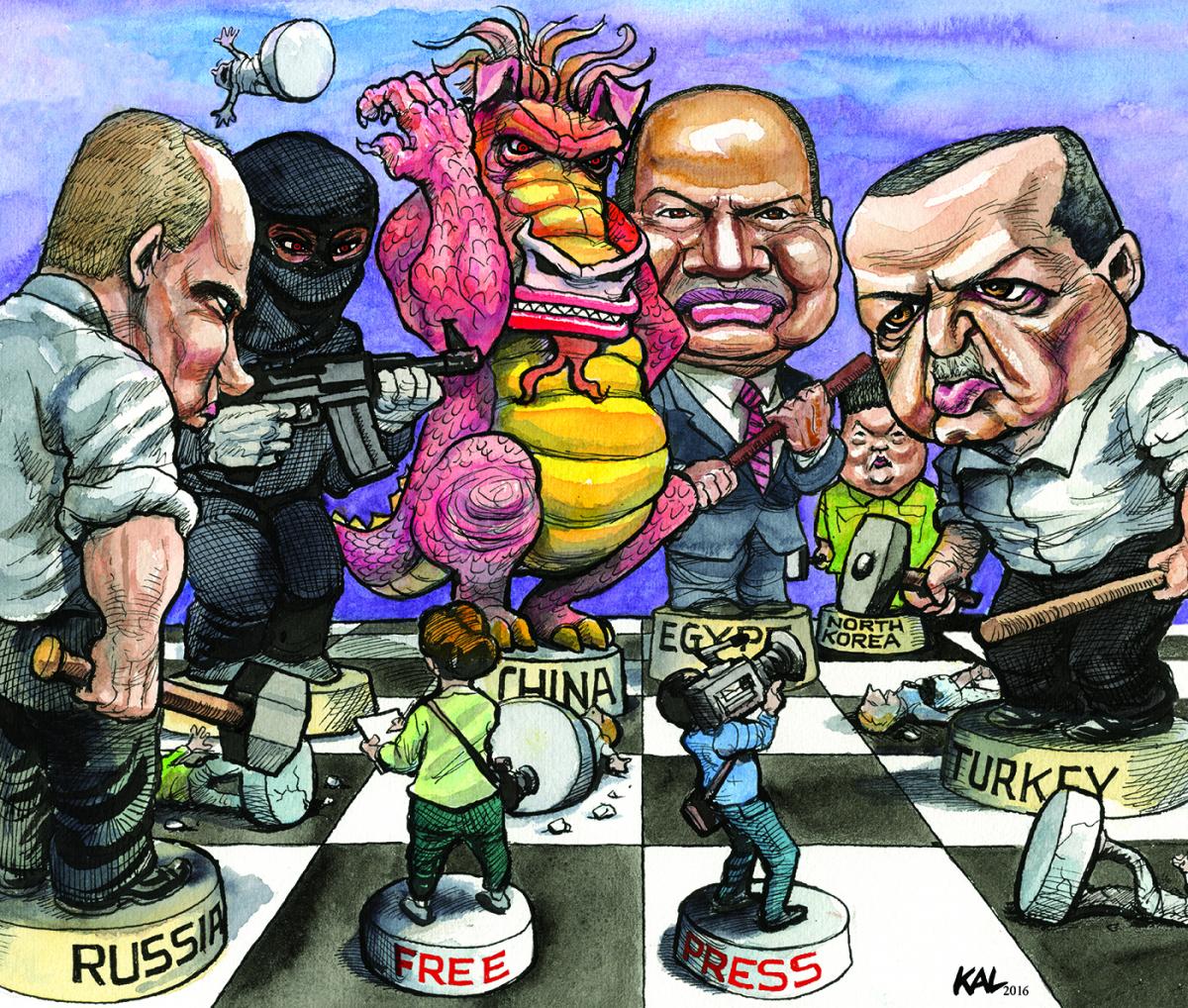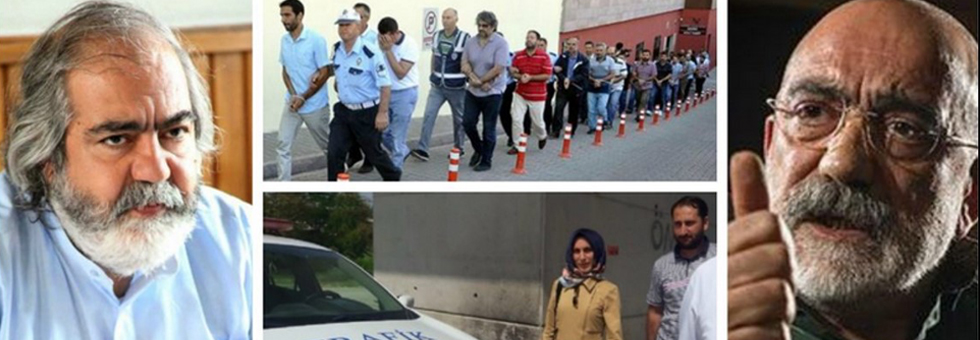By TOLGA KUNTER
The purpose of a criminal proceedings is to reveal the material fact without violating any fundamental human rights. The uncovering the fact at all costs is however a primitive approach; and it cannot be acceptable in modern criminal justice systems. In a rule of law, incrimination of a person may only be secured through legal evidence obtained without violating any fundamental human rights.
“The right to a fair trial” under Article 6 of the European Convention on Human Rights and Articles 19 and 38 of the Turkish Constitution guarantee the principle that illegally obtained evidence cannot be used in the criminal proceedings. In parallel to these provisions, Articles 206, 217, 230 and 289 of the Turkish Code of Criminal Procedures (CCP) expressly provide that illegally obtained evidence cannot be used as a ground to the conviction.
The CCP regulates in detail how the investigation and prosecution will be executed, how the evidence will be collected and how the procedures such as statement taking, search and seizure will be conducted. Whilst carrying out such procedures as described under the law is a right and guarantee for the defendants, it is also a responsibility for the officials undertaking such procedures. While the failure to conform with the law when collecting evidence will make the evidence illegal, the officials committing this misconduct will also be held responsible.
In the criminal proceedings, the testimony of the suspect/defendant is one of the most important evidence. It is expressly stated under Article 148 of the CCP that “The submissions of the suspect or the accused must be based on his own free will.” If there is a statement that does not stem from the person’s free will, then this statement has no value of evidence. The same Article states that, “Any bodily or mental intervention that would impair the free will, such as misconduct, torture, administering medicines or drugs, exhausting, falsification, physical coercion or threatening, or using certain equipment” which impede the use of free-will shall be forbidden.” The above are not conclusive and given as examples of forbidden methods in collecting evidence. The emphasis is that the use of free-will is the pre-requisite of any statement to be deemed as an admissible evidence before a court of law.
For example, in the photos published in the press after the coup attempt, it is evident that Lieutenant Colonel Levent Türkkan, the then military assistant of the Chief of Staff, had been heavily tortured while under arrest before he was detained on 16 July 2016. On the photos, it is clearly seen that there are bruises on his face, all of his abdomen is dressed with bandage, and his hands are encased in plaster. Some statements under the name of “confession” had been obtained from Türkkan while he was being questioned during the arrest.
According to these statements, Türkkan had confessed that he was a member of the Gulen Movement, which was later used as evidence to connect the coup to the Gulen Movement. In his testimony at the court, however, he said that his earlier confession was taken under heavy torture during the investigation stage.[1]
Torture has returned back to Turkey,[2] after the July 15 coup attempt and it started to be widely and systematically used to obtain evidence by compelling the suspects to self-incriminate. This situation is also clearly stated in the reports prepared by the respective bodies of the EU and the UN.[3] In order to prevent the public opinion to learn more about the tortures, the Turkish Government did not permit the European Committee for the Prevention of Torture and Inhuman or Degrading Treatment to publish their latest report about Turkey. [4]
On the other hand, in the report published by the Human Rights Watch on 12 October 2017, titled, “Police Torture and Abductions in Turkey”, it is stated that they “gathered accounts of severe beatings, threats and insults, heard accounts of detainees stripped naked, being threatened with sexual assault or being sexually assaulted… where the torture appeared to be aimed at extracting confessions or compel detainees to implicate other individuals.”
In the aftermath of 15 July 2016, not only torture, but also different bodily or mentally damaging treatment such as ill-treatment, exhausting, deception, physical coercion and threatening have been widely and systematically exercised.
Following the July 15 2016 coup attempt, Turkey has experienced an interesting example of taking statements by way of “deception/falsification.” In the morning of July 16, arrest warrants had been issued for thousands of judges and prosecutors based on the pre-prepared profiling lists and many have been imprisoned without any trial. There was however a problem: There was no evidence whatsoever suggesting that the detained judges and prosecutors are guilty. The judges who detained their own colleagues based their decisions only on very perfunctorily repeated sentences mixed with the provisions taken from the Code of Criminal Procedure (CCP). By issuing confidentiality orders over the files, they tried to prevent this lack of evidence from surging to the surface.
After the detentions, there were frantic attempts to fabricate and produce evidence. For this purpose, the judges and prosecutors have been taken into solitary confinement, they have been prevented from seeing their lawyers, family members and relatives; and they have been subjected to heavy physical and psychological oppression in the prison; meanwhile, a campaign of deception is launched by calling out “whoever becomes confessor will be released”.
The campaign has been primarily led by the then Deputy President of the Turkish Judicial Council (HSYK), Mehmet Yılmaz: “We will not opt for the dismissal for the judges and prosecutors who confess. We are considering to grant them all kinds of privileges,” [5] he claimed on 21 October 2016 and called out all the judges and prosecutors to make confession and implicate names. He responded to the questions of journalist Sevilay Yılman on this matter. On her column at Haberturk news site, Yılman wrote this: “Of course I asked it (the confession) and I was dumbfounded by the answer I received from him. It seems that he SET A PLAY to be able to find evidence to be used during the trials of this organisation.” “Let everyone rest at ease!” said the HSYK Vice President to journalist Yılman.
“HSYK will never turn anyone who benefits from the Effective Remorse Law back to their judicial position. Our council is very resolute in this. I made that statement only to encourage confession and I became very successful in this. Because, although there was not even one confessor in those days, after my statement, there is a blast in the number of confessors. By means of over 200 confessors, we obtained evidence for 2400 judges and prosecutors suggesting that they are members of FETÖ.”[6]
These words that come out of the mouth of a person occupying the top position in the Turkish judiciary can never be accepted and are “horrendous” in terms of modern criminal justice system! You are detaining people without any evidence against them. You are using all the facilities provided by the state power to exert physical and psychological pressure on the detainees in prisons. You are extinguishing all the flames of their hope by saying that “Forget coming out of prison for at least 10 or 20 years!” Then afterwards, you are lighting a candle of hope by saying that “we will not opt for the dismissal for the judges or prosecutors who confess” and invite people to incriminate themselves and implicate names of their colleagues, in other words, force them to become confessors; if there is nothing to confess, then force them to fabricate stories and delate and slander other people.
Whether you call it “confession” or “defamation”, getting testimonies in this manner is nothing other than eliminating the “free will” by means of “deception and trap setting.” The criminal responsibility of running such a campaign is unavoidable. The testimony taken under these circumstances has no legal value or validity and may not be taken as the ground for any conviction, and hence must taken out of the case file forthwith.
After the July 15 coup attempt, such unlawful practices in extracting statements under the pretext of “confession” have been widely and systematically implemented across the country over all the detainees. The system is simple: arrest people according to the lists prepared by the Turkish Intelligence Agency and the Police Force without checking whether or not there is any reliable evidence. Apply all torture techniques during the custody and arrest and exert force on the detainees to give statements under the pretext of “confession”. Send those who did not “confess” to prison and confine them in cells. Cut all their links from the outside world. Meanwhile, use all physical and mental pressure methods and condition their minds to the message that “those who do not confess will never be able to come out of the prison!”
With this unlawful and primitive method implemented by the Erdogan regime by exploiting the facilities of all the state institutions, it is not difficult to obtain any desired statement from the suspects. It is not easy at all for an individual who believe that his and his family’s liberation will only be possible by means of “confession” –not by “justice” – to resist “the natural instinct of self-protection.”
How much free is the testimony extracted from an arrested/detained person in a country where the judiciary has lost all its impartiality and independence; the judiciary itself has become the tool of oppressing the opponents in the hand of the Erdogan regime;[7] the ministers dare to make such public statements as “We will clap these (implying the detainees) into such dingy holes that they will never see the sun-light and will never hear any human voice. ‘Bump us off anymore’ they will beg us;”[8] the panel of judges of a court are all dismissed by the Council of Judges and Prosecutors (HSK) as soon as they issued release verdicts for the unlawfully detained journalists;[9] the suspects are kept in darkness for days so that their time perception is lost;[10] a prison warden tortures the detainees by shouting at them “I am the God of this place!;”[11] the people are abducted right in the middle of the capital city Ankara in broad daylight by unknown men of the Erdogan regime and are subjected to torture and interrogation at unknown places held for weeks;[12] the perpetrators of such unlawful acts are encouraged by not prosecuting them and not filing indictments against such offenses?[13] Can it be possible to issue conviction merely based on such testimonies?
The answer to this question is clear not only in the European Convention on Human Rights but also in the Turkish Constitution and in the Turkish Code of Criminal Procedures: a statement that does not stem from the free will of the suspect does not constitute legal evidence. Statements that are not legally obtained may not be used as evidence at trials.
It would just be a dream to expect from what it has been transformed into Erdogan’s judiciary to make a fair and impartial assessment as to the legality of the statements obtained after the 15 July 2016 coup attempt, where its 4521 members are unlawfully dismissed, 2728 detained and 680 kept in solitary confinement. As stated in the Human Rights Watch’s Report, the judges and prosecutors are “deeply concerned about their job security.”[14]
In Turkey today, it is not just for the suspects to give statements based on free-will very slim but also for the judges and prosecutors to issue impartial and independent verdicts. It does not seem possible for Turkey to come out of this dark tunnel of unlawfulness on its own. International community and especially the European Court of Human Rights must exhibit a much more active role to put the rule of law back on to its track in Turkey.
- https://medium.com/tr724/t%C3%BCrkkan-i%C5%9Fkenceyi-anlatt%C4%B1-her-taraf%C4%B1m-da%C4%9F%C4%B1lm%C4%B1%C5%9Ft%C4%B1-beyin-r%C3%B6ntgeni-%C3%A7ektiler-samimi-bir-ifadem-yok-49f02d47359 ; http://www.abcgazetesi.com/aa-iskence-fotografi-paylasti-22439h.htm ↑
- https://www.economist.com/news/europe/21728648-crackdown-gets-brutal-torture-returns-turkey ↑
- http://www.bbc.com/turkce/haberler-dunya-37919915; https://www.ab.gov.tr/files/5%20Ekim/son__2016_ilerleme_raporu_tr.pdf ; http://www.diken.com.tr/bm-raportorunun-izlenimleri-turkiyede-iskence-yaygin-olarak-uygulaniyor/ ↑
- http://www.dw.com/tr/t%C3%BCrkiye-i%C5%9Fkence-raporuna-onay-vermedi/a-38512009 ↑
- http://www.milliyet.com.tr/itirafci-hakim-ve-savcilara-goreve-gundem-2331222/ ↑
- http://www.haberturk.com/yazarlar/sevilay-yilman-2383/1341844-hsyk-baskanvekili-niyetim-itirafciligi-tesvik-etmekti ↑
- https://peacejustice.eu/report-non-independence-non-impartiality-turkish-judiciary/ ↑
- http://www.diken.com.tr/bakan-zeybekciden-adil-yargilama-sinyali-gebertin-bizi-diye-yalvaracaklar/ ↑
- http://www.aljazeera.com.tr/haber/tahliye-karari-verenler-aciga-alindi ↑
- https://turkeydeiskence1.weebly.com/ ↑
- https://turkeydeiskence1.weebly.com/ana-sayfa/category/van-cezaevinde-304351kence ↑
- https://www.hrw.org/tr/news/2017/10/12/310055 ↑
- https://www.hrw.org/tr/news/2017/10/12/310055 ↑
- https://www.hrw.org/tr/report/2017/10/12/310066 ↑



